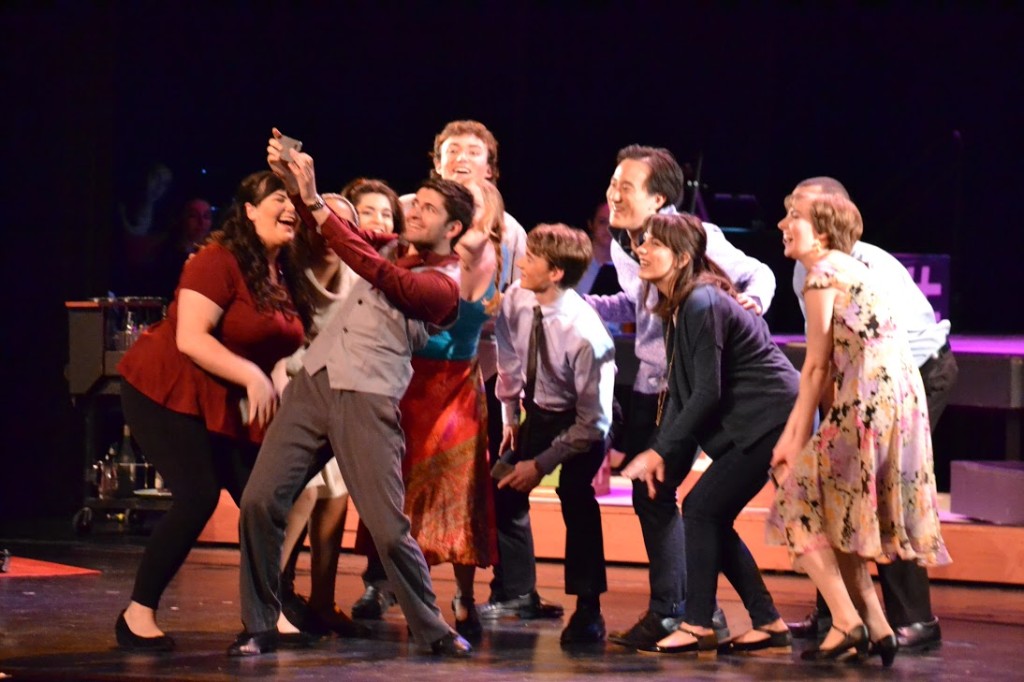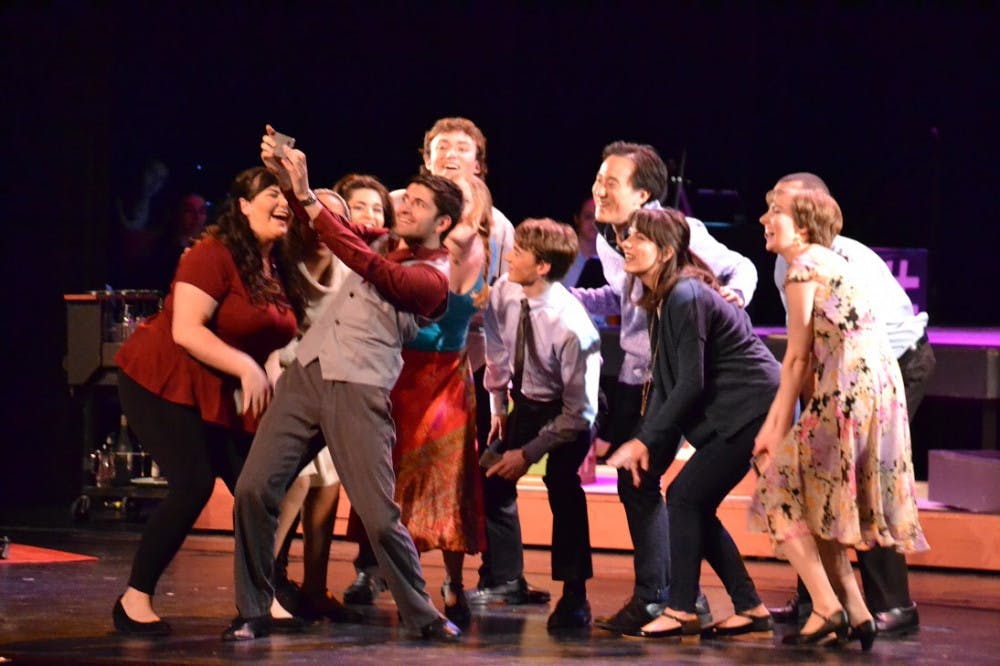By Erin Cooper
Staff Writer
The #OscarsSoWhite boycott shook the entertainment world this year, sparking dialogue in media outlets worldwide about diversity in casting. At the College, one production this year had its own casting controversy.
When the roles for Lyric Theatre’s spring production of “Company” were being cast last semester, the group wanted to update the 1970 play about relationships. The LGBTQ community has made many strides since the play premiered 46 years ago, so the decision was made to change one of the play’s married couples — Susan and Peter in the original script — to a lesbian couple.
“Company,” however, is a play that comes with conditions. It is the policy of Music Theatre International (MTI), the agency that owns the rights to the play, that “no one in the play can be gay,” according to Jennifer Little, an adjunct professor responsible for Lyric Theatre and staged musical productions who directed “Company” during its campus run on Friday, Feb. 26, and Saturday, Feb. 27, on the Kendall Hall Main Stage.

“Company” is the story of Bobby — a single man struggling with commitment. Since the play’s early days, directors have wanted to interpret Bobby as a gay man trying to fit into a straight world. The playwright, George Furth, who was gay himself, was against that interpretation, stating that the play was not about sexuality, but commitment.
Times have changed, but MTI policy has not.
Furth passed away in 2008, so he could not be asked for permission to make alterations in the cast. Instead, Little reached out to lyricist and composer Stephen Sondheim through his lawyer. The man behind the music of “Sweeney Todd” and “Into the Woods” is one of the luminaries of musical theatre, so Little was surprised when he personally replied to her email. She explained the changes she wanted to make and Sondheim was on board, with enthusiasm.
“He changed Peter’s name to Petra and started working on a new concept,” Little said.
Before his new concept could progress, MTI wrote to refuse permission to include gay characters in the play. When a play’s script describes a character in specific terms, MTI can enforce faithfulness to it. “Technically, if you don’t cast someone matching show description, you are in violation,” Little said.
MTI could not be reached for comment.
“They said it would open a can of worms,” Dean of the School of Arts and Communication John Laughton said. “Even Stephen Sondheim couldn’t change the rules.”
Violating the rules comes with a price.
“We would have been fined. It would have been a mess,” Laughton said.
Sondheim was unable to overturn MTI’s decision, but Little had nothing but praise for him and his involvement.
“He was very gracious and very patient and wonderful,” Little said.
The students were informed that they would be forced to change their production.
“When we found out that MTI wouldn’t allow us to have a lesbian couple, we were all pretty upset, seeing as we had already picked which couple would be lesbian and who would play the roles,” junior voice education major Nicole Myers said, who played the role of Joanne in the production. “It was a little chaotic because we had to reassign roles and ask more men to join us in the middle of putting the show together.”
This incident may have been specific to “Company,” but the larger issue is not. As well as teaching at the College, Little is the artistic director and one of the founders of Strength Out of Shadows, a grassroots theatre company in which actors of color predominate. In her experience, diversity is a problem throughout the theatre world. Actors of color are often typecast or passed over. Transgender and physically disabled actors may find themselves without any roles at all.
“I think it’s important that we, as artists, work really hard to reflect the diversity of our communities so that we don’t have another all-white Oscars,” Little said. “Our society is so wonderfully diverse, with all types of people.”
Little tries to practice what she calls “diverse conscious casting.” It isn’t color blind casting, but thoughtful, meaningful casting. As an example, Little pointed out Lin-Manuel Miranda’s musical “Hamilton.” According to Little, it was Miranda’s intention that “the face of immigrants today should be reflected in the cast.”
In February, “Hamilton” won the Grammy for Best Musical Theater Album and inspired Twitter outrage when some objected to Miranda, a Latino actor, portraying Alexander Hamilton.
“I’m glad you didn’t pay too much attention,” Little said of the complainers. “Your mind would have been blown if you realized (the musical’s) Washington was black!”
The cast of the College’s “Company” was diverse, featuring actors of various backgrounds, and Little, who joined the faculty in August, plans to continue her conscious casting in her work with Lyric Theatre.
“One of my personal goals is to rebuild the program and to make it a bigger, more thriving program,” she said.
She hopes to open auditions next year, so that anyone can join this diverse group.
“There’s more work to be done,” Little said. “There’s always so much to be done.”







